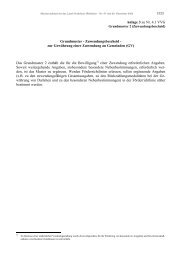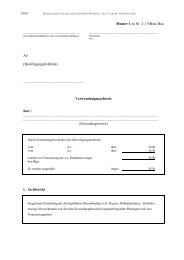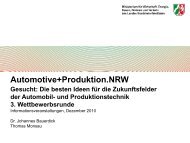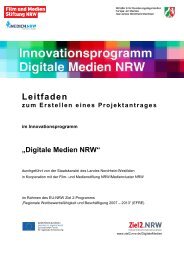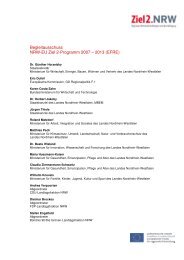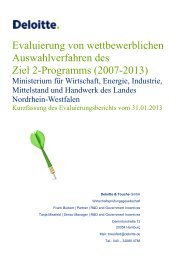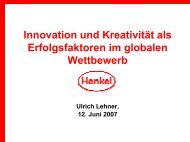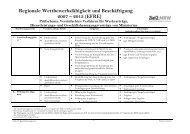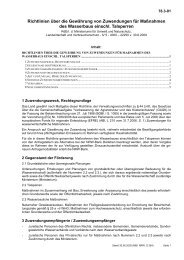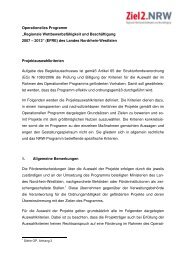Synthesis Report - European Commission - Europa
Synthesis Report - European Commission - Europa
Synthesis Report - European Commission - Europa
You also want an ePaper? Increase the reach of your titles
YUMPU automatically turns print PDFs into web optimized ePapers that Google loves.
Ex-post Evaluation of the ERDF 2000-2006<br />
<strong>Synthesis</strong> <strong>Report</strong><br />
Moreover, in many cases, employment creation or maintenance was not the main aim of the<br />
support provided. Instead, the immediate purpose was to increase business efficiency and<br />
competitiveness which might well imply a reduction in employment, or at least no increase.<br />
Accordingly, the lack of job creation, or a low rate of creation, cannot be taken as evidence of a<br />
lack of success.<br />
Bearing in mind these qualifications, enterprise support co-financed by the ERDF in the 30 largest<br />
enterprise support programmes across the EU, encompassing both Objective 1 and Objective 2<br />
regions, is reported to have led to the creation of just under 640,000 jobs over the 2000-2006<br />
period. This is slightly more than the aggregate target set across the regions concerned, which<br />
does not mean that all targets were achieved – in some cases, the outcome fell well short of the<br />
target, in some, it exceeded it by some way.<br />
The implication from the programmes examined is that over the EU as a whole, at least 1 million<br />
new jobs were created in Objective 1 and Objective 2 regions as a result of enterprise support<br />
according to the estimates of the authorities concerned.<br />
This total is based on estimates from less than half of the business support measures identified<br />
in the evaluation (130 out of 272). The rest did not report figures for job creation, either because<br />
of the difficulties of doing so or because direct employment creation was not a central aim of the<br />
support provided.<br />
Whatever the shortcomings of the estimates, they suggest that ERDF made a substantial<br />
contribution to employment creation in the regions assisted over the period.<br />
3.1.6 Reflections on the results<br />
Perhaps the most relevant indicator to use to measure the effects of enterprise support is the<br />
increase in productivity which resulted from the assistance received. This is linked in some<br />
degree with competitiveness, which to a large extent was a major aim of policy in most if not all<br />
regions, especially in the later years of the programming period. In some regions, attempts were<br />
made to measure this, but in none of them were these considered to have been successful.<br />
According to the evaluation, enterprise support undoubtedly led to increased employment and, in<br />
some cases, to increased productivity, though precisely how much in each case is uncertain<br />
because of measurement problems.<br />
3.2 EVALUATING ENTERPRISE SUPPORT IN EASTERN GERMANY USING COUNTERFACTUAL<br />
METHODS<br />
As indicated above, there is an acute problem of assessing the effects of enterprise support from<br />
the evidence available. In particular, the methods used to evaluate programmes across the EU<br />
over the period tended to be relatively crude, in few cases attempting to make any allowance for<br />
what would have happened in the absence of funding. Partly to encourage more studies to be<br />
undertaken of a rigorous kind in this important area, a pilot study was commissioned as part of<br />
the evaluation to explore the possibilities of applying counterfactual methods to micro-data on<br />
enterprise performance. The results are summarised below and although they give only a limited<br />
view of the results of the funding provided by the ERDF, they represent an important start to the<br />
task of assessing the real effects of enterprise support and an example of the type of method<br />
which should be used to do this.<br />
73



